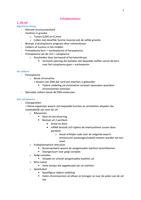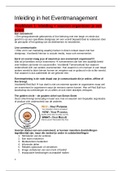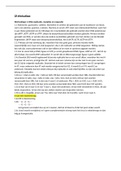career choices
Unit 1: Core elements of a job contract; worker rights and obligations;
conditions of service.
1.1Labour Laws: Labour Relations Act, Employment Equity Act and Basic Conditions of
Employment act
Labour Laws- follow democratic ideals of the Constitution.
-deals with employee and employer rights & obligations.
The labour relations act(LRA), Act of 1995
Aims to promote economic development, social justice, labour peace and
democracy in workplace.
Makes rules for relationships between employers and employees, employer
organisations and trade unions.
Promotes employee rights to fair labour practices; to form and join trade unions
and employers’ organisations; to organise and bargain collectively; to participate
in decision-making through workplace forums; and to strikes and lock-outs.
Expects employers and employees to try settle arguments and disputes through
negotiation and conciliation.
Establishes the Commission for Conciliation, Meditation and Arbitration
(CCMA)- plays critical role in sorting out disputes and providing advice.
The Labour Court and the Labour of Appeal Court decides on matters relating to the
LRA.
Doesn’t apply to members of National Defence force, National Intelligence Agency,
South African Secret Service.
Some rights are limited when applied to domestic workers.
Employment Equity Act, 55 of 1998 (EEA)
promotes equal opportunity in workplace by eliminating unfair discrimination in any
employment policy or practice.
Regulate affirmative action- people from different groups who have suitable
qualifications are given opportunities for employment.
, The Basic Conditions of Employment Act (BCEA), 75 of 1997
Rules and regulations about the right to fair labour practices
Employers must give employees details of their employment in writing
(employee contract)
Against the law to employ children under 15 years old. Except for children in
theatre, dance, movies.
Employees have duties and responsibilities towards employers. Eg must not take
sick leave when not sick, obey all lawful and reasonable instructions from their
employers.
Core elements of a job contract
Conditions of service must be covered in employment contract.
Core elements are the minimum/basic elements.
Equity
SA labour laws promote equity and fairness.
Every employer must take steps to promote equal opportunity in the workplace by
eliminating unfair discrimination in any employment policy or practice.
No person can be discriminated against because of race, gender, sex, pregnancy,
marital status, family responsibility, ethnic or social belief, political opinion, culture,
language and birth.
Redress
SA labour laws provide for general redress of past unfairness.
Also means making right a current wrong.
Disciplinary Hearings- address employees misconduct in the
workplace ie, absenteeism, insubordination or not doing what the employer
tells you to do, dishonesty.
Workplace Forums- committees of elected employees meet regularly
with employers to discuss workplace issues.
Trade Unions- help represent employees in grievance and disciplinary
proceedings.
Bargaining Councils- represent employers and employees in different
sectors.
Commission for Conciliation, Mediation and
ARBITRATION and employers through negotiation and conciliation instead
of strikes and going to court.










